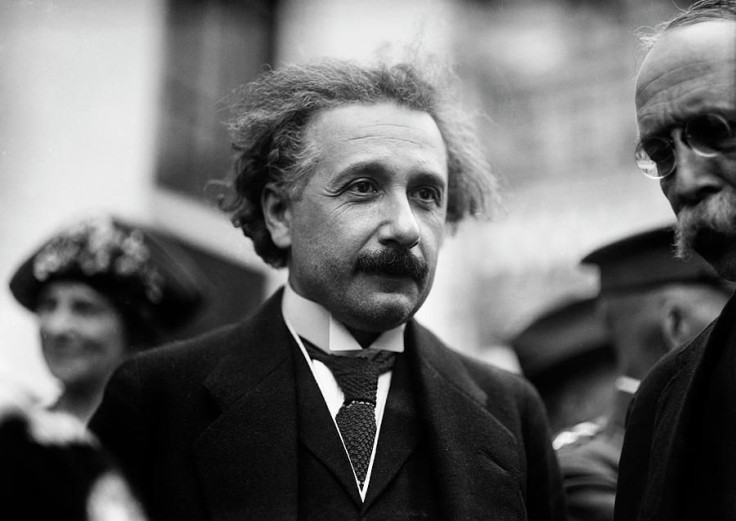“A calm and modest life brings more happiness than the pursuit of success combined with constant restlessness.” These are the words scribbled on a sheet of paper by the world's most important theoretical physicist when he realized he did not have enough to tip a bellboy at The Imperial Hotel in Tokyo just after he found out he would receive a Nobel Prize. On a second sheet of paper, he wrote, “Where there’s a will, there’s a way,” with the tentative promise, corroborated by the auction house, that his achievements in scientific research would deem these notes very profitable for the bellboy.
As far as tips and omens go—not too bad. On Tuesday, the first note, which has since been dubbed Einstein’s “theory of happiness,” was sold by Winner’s Auctions and Exhibition for $1.56 million dollars, while the second note sold for $250,000. It’s a cute anecdote, consistent with what we know about Einstein. And if you're able to forgive its unimaginative phrasing, I think you’ll find that these makeshift tips ring true.
The road to happiness by way of ambitions and external validation is ultimately toxic. That truth lives within the larger more dispiriting truth that the road to obtaining happiness by any means is one that is undoubtedly bound to dissatisfy. It requires a certain strenuous pertinacity to maintain a semblance of happiness in a world that couldn’t possibly have any less stake in our well being. Death, anxiety, ego, disease, are all inevitable enemies of a well-adjusted life, regardless of how “modestly” one goes about living it. I’m not morose, nor am I’m a resigned to an inexorably miserable march back to the maggots, but I believe the preoccupation with achieving happiness is itself a deterrent.
The reprieve brought on by keeping up with the arts, working towards a promotion at work, romantic endeavors etc. is fleeting and the labor needed to maintain contentment through these means is neverending. The real key to a decent emotional state is to acknowledge distractions for what they are and to seek a sense of happiness irrespective of them. The “calm” life Einstein describes can only exist when it isn’t reliant on the affirmations of “things.”
To quote neuroscientist Sam Harris, “Is it possible to be happy before anything happens? Before one’s desires get gratified?” The pursuit of success affords a happiness that is, by its nature, superficial. No matter the kind or degree of success achieved, it will always be haunted by that pervasive, “What Next?” This is what I think Einstein meant by constant restlessness. There’s an alternative to stalking external pleasures, be they literature, movies or even the love of others. Meaningful happiness exists independent of circumstance.
Einstein was right to say these notes were more valuable than the monetary tip he would have given the hotel messager had he the means, but not merely for the reasons he intended.

















